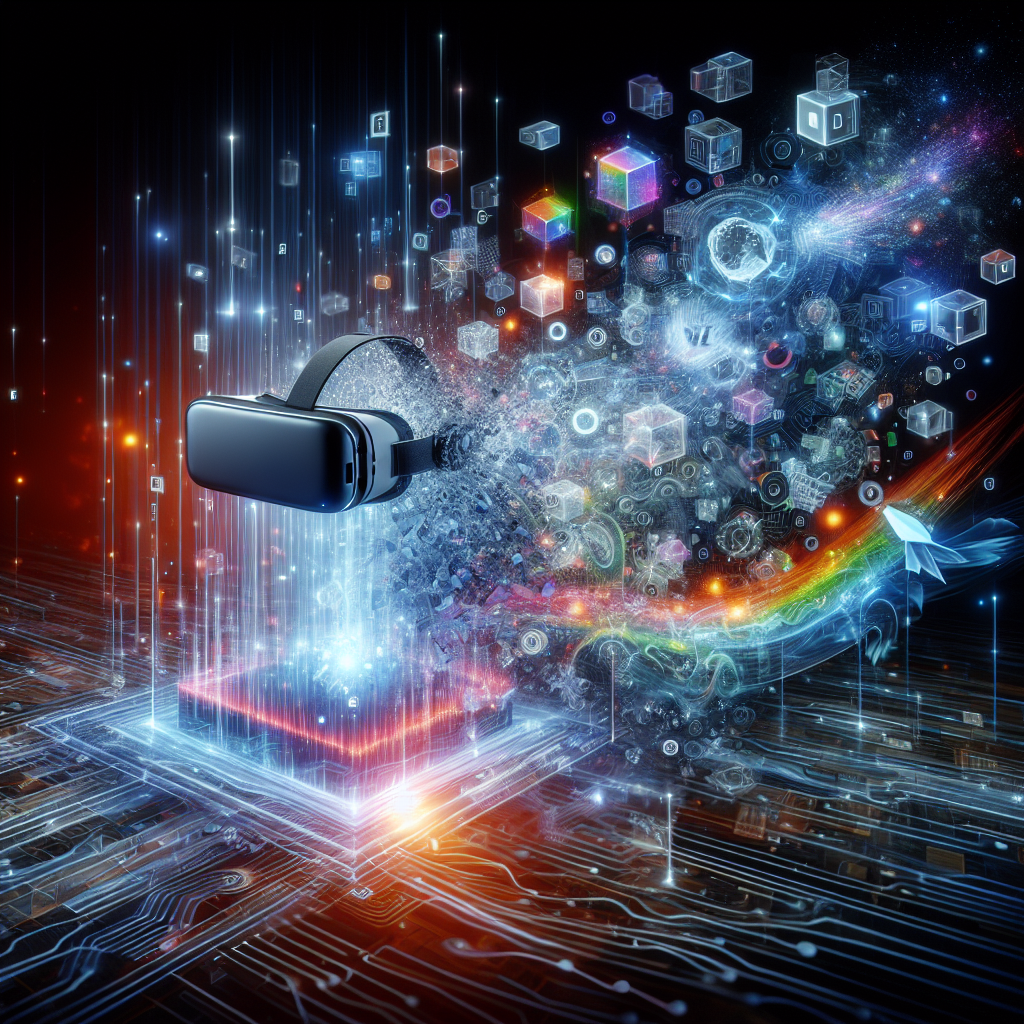The Impact of AI on Virtual Reality: Transforming the Entertainment Experience
In recent years, the convergence of artificial intelligence (AI) and virtual reality (VR) has transformed the way we experience entertainment. The combination of these two cutting-edge technologies has opened up new possibilities for immersive and interactive experiences that were once only seen in science fiction. From gaming to film, AI-powered VR applications are revolutionizing the entertainment industry and reshaping the way we consume media.
AI and VR: A Match Made in Tech Heaven
AI and VR are two technologies that have been rapidly evolving in recent years. AI, with its ability to analyze vast amounts of data and make intelligent decisions, has been integrated into a wide range of applications, from self-driving cars to personalized advertising. VR, on the other hand, creates immersive virtual environments that allow users to interact with digital content in a more engaging way than ever before.
When these two technologies are combined, the result is a powerful tool that can create truly immersive and interactive experiences. AI can be used to analyze user behavior and preferences, creating personalized experiences that adapt to the user’s actions in real time. This level of personalization can make VR experiences more engaging and enjoyable, leading to increased user satisfaction and retention.
One of the key ways in which AI is impacting VR is through the development of intelligent virtual characters. These characters can interact with users in a more lifelike way, responding to their actions and emotions in a more natural manner. This creates a more immersive experience that blurs the line between reality and virtual reality, making the entertainment experience more engaging and memorable.
AI-powered VR applications are also being used to create more realistic and dynamic environments. By analyzing user behavior and preferences, AI can create virtual worlds that are tailored to the individual user, making the experience more personalized and engaging. This level of customization can lead to increased user satisfaction and retention, as users feel more connected to the virtual environment.
The Impact on Gaming
One of the areas where AI-powered VR applications are having a significant impact is in the gaming industry. AI-powered virtual characters are being used to create more realistic and challenging opponents, making gameplay more engaging and immersive. These virtual characters can adapt to the player’s actions in real time, creating a more dynamic and unpredictable gaming experience.
AI is also being used to create more realistic and immersive environments in VR games. By analyzing user behavior and preferences, AI can create virtual worlds that are tailored to the individual player, making the experience more personalized and engaging. This level of customization can lead to increased player satisfaction and retention, as players feel more connected to the virtual world.
In addition, AI-powered VR applications are being used to create more immersive and interactive storytelling experiences in games. By analyzing user behavior and preferences, AI can create branching narratives that adapt to the player’s actions, creating a more engaging and dynamic storytelling experience. This level of interactivity can make games more compelling and memorable, leading to increased player engagement and loyalty.
The Impact on Film and Television
AI-powered VR applications are also transforming the film and television industry, creating new opportunities for immersive storytelling and interactive experiences. AI can be used to create more realistic and lifelike virtual characters, making it possible to create interactive films and television shows that respond to the viewer’s actions and emotions in real time.
AI is also being used to create more immersive and dynamic virtual environments in film and television. By analyzing user behavior and preferences, AI can create virtual worlds that are tailored to the individual viewer, making the experience more personalized and engaging. This level of customization can lead to increased viewer satisfaction and retention, as viewers feel more connected to the virtual environment.
In addition, AI-powered VR applications are being used to create more interactive and engaging advertisements and marketing campaigns in the film and television industry. By analyzing user behavior and preferences, AI can create personalized advertisements that adapt to the viewer’s actions, creating a more engaging and memorable experience. This level of personalization can lead to increased viewer engagement and brand loyalty.
FAQs
Q: How is AI being used in virtual reality?
A: AI is being used in virtual reality to create more realistic and lifelike virtual characters, dynamic environments, and interactive storytelling experiences. AI analyzes user behavior and preferences to create personalized experiences that adapt to the user’s actions in real time, making the entertainment experience more engaging and immersive.
Q: What impact is AI having on the gaming industry?
A: AI is having a significant impact on the gaming industry by creating more realistic and challenging opponents, immersive environments, and interactive storytelling experiences. AI-powered virtual characters can adapt to the player’s actions in real time, creating a more dynamic and unpredictable gaming experience that leads to increased player satisfaction and retention.
Q: How is AI transforming the film and television industry?
A: AI is transforming the film and television industry by creating new opportunities for immersive storytelling and interactive experiences. AI-powered virtual characters and environments can respond to the viewer’s actions and emotions in real time, creating more engaging and personalized viewing experiences that lead to increased viewer satisfaction and retention.
In conclusion, the impact of AI on virtual reality is transforming the entertainment experience in ways that were once only seen in science fiction. From gaming to film, AI-powered VR applications are creating more immersive, interactive, and personalized experiences that are reshaping the way we consume media. As these technologies continue to evolve, we can expect to see even more innovative and engaging entertainment experiences in the future.

